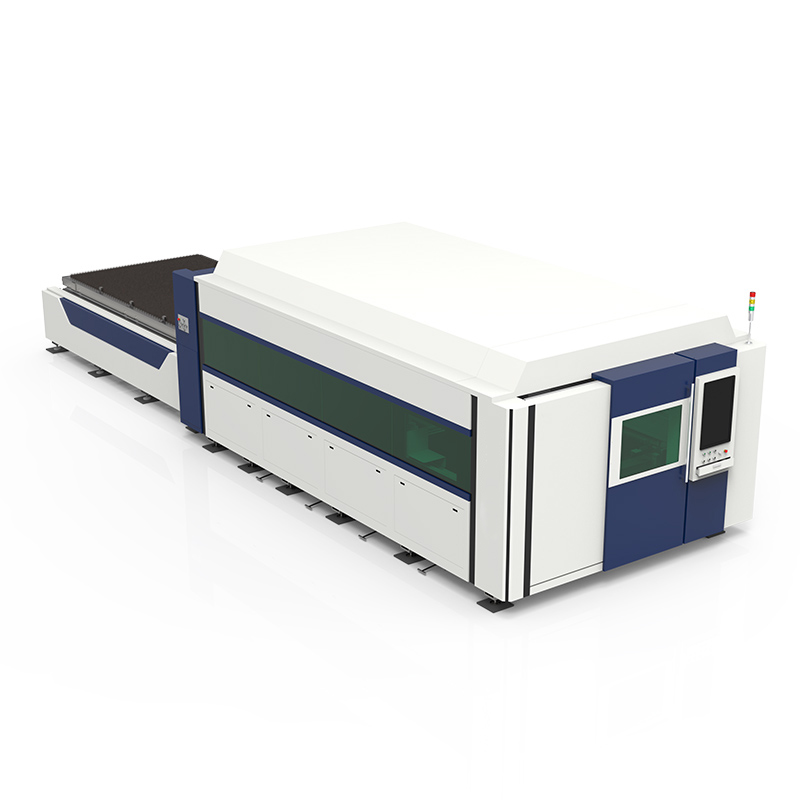Can a Laser Cutter Effectively Cut Sheet Metal?
In the realm of modern manufacturing and fabrication, laser cutting technology has emerged as a revolutionary tool. With its precision, speed, and versatility, laser cutters have transformed various industries. One question that often arises is whether a laser cutter can effectively cut sheet metal. In this article, we'll explore the capabilities, advantages, limitations, and considerations associated with using laser cutters for sheet metal fabrication.
Capabilities of Laser Cutters
Laser cutting machines utilize highly focused beams of light to cut through various materials with extreme precision. When it comes to sheet metal, laser cutters offer several distinct advantages:
Precision: Laser cutters are known for their exceptional accuracy. They can create intricate and complex designs on sheet metal with minimal material wastage.
Speed: Laser cutting is a swift process, making it suitable for high-volume production. The concentrated energy of the laser allows for fast and efficient cuts, enhancing overall productivity
Versatility: Laser cutters can work with various types of sheet metal, including stainless steel, aluminum, brass, and more. This versatility makes them adaptable to a wide range of applications.
Minimal Heat Affected Zone (HAZ): Advanced laser cutting techniques, such as fiber lasers, result in a smaller heat affected zone. This reduces the likelihood of warping or distortion in the sheet metal, preserving its structural integrity.

Advantages of Laser Cutting Sheet Metal
Laser cutting offers numerous advantages when applied to sheet metal:
Intricate Designs: Laser cutters can create intricate patterns and shapes that might be challenging to achieve with traditional cutting methods.
Smooth Edges: Laser cutting produces clean and smooth edges without the need for secondary finishing processes in most cases.
Minimal Material Waste: The precision of laser cutting minimizes material wastage, contributing to cost savings and more sustainable manufacturing.
Quick Prototyping: Laser cutters allow for rapid prototyping, enabling manufacturers to test designs and make adjustments efficiently.
Limitations and Considerations
While laser cutting is a powerful tool, there are certain limitations and considerations to keep in mind when using it for sheet metal:
Material Thickness: Laser cutters are highly effective for thin to medium-thickness sheet metal. However, for extremely thick materials, the process might become slower and less cost-effective.
Reflective Materials: Highly reflective metals, like copper and silver, can reflect the laser beam, reducing cutting efficiency. Special techniques or more powerful lasers might be required for these materials.
Initial Investment: Acquiring a laser cutter involves a significant upfront investment. Maintenance, training, and operational costs should also be considered.
Design Constraints: While laser cutters offer great flexibility, certain design features, such as sharp inside corners, might pose challenges due to the diameter of the laser beam.
Conclusion
In conclusion, laser cutters are indeed capable of effectively cutting sheet metal, offering precision, speed, and versatility that can revolutionize the manufacturing and fabrication processes. The advantages of laser cutting, such as intricate designs, smooth edges, and minimal waste, make it a compelling choice for various industries. However, it's important to consider the limitations, including material thickness and reflective properties, before opting for laser cutting in specific applications.
As technology continues to advance, laser cutting techniques are likely to improve even further, potentially reducing current limitations. With careful consideration of the materials and designs involved, manufacturers can harness the power of laser cutters to streamline production, achieve remarkable designs, and stay at the forefront of modern manufacturing.


